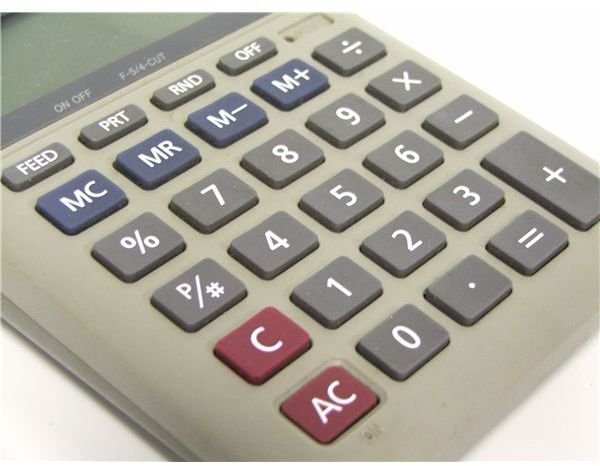Trust Accounting Basics Explained
The Duties of a Trustee
The duties of a trustee may be imposed by the law, or by the instrument or deed that sets up the trust. The trustee has to take the care that an ordinary prudent person would exercise in making an investment on behalf of another person. The trustee must also act within the scope of the powers given to the trustee by the trust instrument. To show that the trustee is carrying out these duties properly, it is necessary to know some trust accounting basics that will help the trustee to adequately record the income and expenses of the trust.
A person acting as a trustee therefore, has a duty to administer the trust prudently, in good faith and in accordance with the needs of the beneficiaries. This duty to administer the trust prudently means that the trustee must be able to properly account to the beneficiaries of a trust as to how the trust property has been administered, and there are also duties towards other persons such as the tax authorities. In addition to this, there is a duty to invest the trust property appropriately. To ensure that this duty is being carried out, the trustee must account correctly for the way in which the trust property is used.
The trustee has a duty to keep true and accurate accounts of the transactions carried out. A record of all receipts and payments must be kept and supported by documentation such as receipts and vouchers. The trustees must make sure that the trust accounts are always available for inspection by the beneficiaries.
The trustees may not profit from the trust, or buy or deal in the trust property on their own personal account; however they are entitled to fair remuneration for their work as trustees. This provision for remuneration may be specified in the trust deed, or the trustees may rely on the entitlement to remuneration given to them by law.
With regard to trust investments, these should be reviewed by the trustees from time to time, to ensure the suitability for the trust of retained or proposed investments, and to consider the need for diversification of investments. The trust accounting basics include proper recording of the trust investments in the accounting records, and the retention of sufficient documentation to show the title to these investments.
Types of Trust
The way in which the trustees may need to account for trust transactions will depend on the requirements of the instrument setting up the trust. The trust instrument will state who are the beneficiaries of the trust, and what amounts should be paid to them at what times, sometimes leaving the trustees some discretion as to how and to whom they make payments. The trustees must prepare trust records and accounts in a way that will enable them to record the amount and types of income earned by the trust, and to calculate the amount and timing of payments to the beneficiaries. The requirements of the trust instrument must always be borne in mind when the trustees receive and account for income.
In learning the trust accounting basics, the trustees must remember that they will need to complete the trust tax return at the end of the tax year, and that this will ask them to account for income and expenses under certain headings and categories. They must therefore ensure that the trust accounts are set up in a way that enables them to distinguish the different types of income and expense. The relevant figures for the trust tax return should be available from the accounting records.
Trust Income
Trust income will be of various types, which must be carefully distinguished from one another in the trust accounts. Where the trust is responsible for a business, there will be business income which must be kept separate from other incomes of the trust. Suitable support documentation such as invoices should be retained as for any business.
Other types of income will include income from property such as rents received, and income from investments such as dividends, and interest or income from other trusts. These must be recorded separately as they will need to be shown separately in the tax return. Any tax deducted from the income received must also be recorded, together with any tax deduction or credit relating to the dividends received. Foreign income should also be recorded separately, with a record of any foreign tax deducted from this income. Suitable records such as dividend vouchers and bank statements should be retained.
Trust Expenses - Basics of Trust Accounting

The basics of trust accounting require the expenses of the trust to be separated into relevant categories for the purpose of determining their treatment for accounting and tax purposes. Expenses relating to a business carried on by the trust must be identified as they will be offset against business income in the calculation of the business profits. Expenses that relate to a particular type of income such as expenses incurred in connection with property owned by the trust or in collecting rents must also be separately recorded; as this may be offset against the rent received in computing the net income from property.
The trust management expenses must also be carefully recorded. These may include accountancy, audit, insurance and legal expenses relating to the general management of the trust. It is important for the trustees to identify the purpose for which each expense was incurred, to ensure that the general management expenses of the trust are recorded separately from those expenses that are incurred in earning income, such as business or property expenses.
Distributions to Beneficiaries
Distributions to the beneficiaries of the trust, which must be made according to the requirements set out in the trust instrument, must be recorded separately. The trustees must be very clear that these distributions are not classified as expenses of the trust, and they should not be confused with or included in trust management expenses. When payments are made to beneficiaries, the relevant tax forms should be completed, showing the income paid to the beneficiaries and the tax relating to this income. These forms will be essential for the beneficiaries when they complete their own tax returns, as evidence of tax relating to the trust income they have received.
Trust Investments
As the trustees have a duty of care and particular legal responsibilities with regard to making appropriate investments, the basics of trust accounting require that these trust investments should be carefully recorded in the accounting records, and must be supported by adequate documentation. As the beneficiaries can ask to see the trust accounts at any time, the trustees must have suitable records showing deposit accounts, shares and other securities, and the income arising from these. Given the need for trustees to regularly review trust investments and to ensure that they are diversified, the available records should be sufficient to show that these duties have been carried out.
References
“Essential Law for the Chartered Tax Adviser” (sixth edition, October 2009) Chartered Institute of Taxation, UK
“Tolley’s Taxwise II: Inheritance tax, taxation of trusts and estates” by S. Jones and M. Waterworth, LexisNexis, 2010
Image credits:
cohdra_100_5337bw.jpg by cohdra on morguefile
DSCF5161.jpg by ronnieb on morguefile
